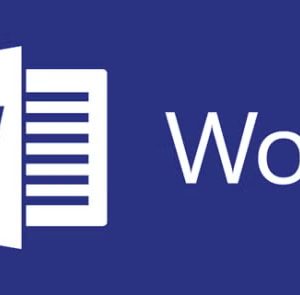Description
QUESTION:
Storytelling, including historical investigations, oral traditions, cinema, and documentaries, offers an important method to
investigate culture. Using the films Gojira (1954), Dr. Strangelove (1964), the book Voices from Chernobyl (1995), and the
documentary The Atomic States of America (2012) we considered what stories reveal about ideas, attitudes, morals, and
tensions within the cultures and societies that produced them. Select two (2) of these stories and consider: what do these
stories collectively (together) reveal about humanity’s relationship with atomic technology in the aftermath of World
War II (post-1945)? To answer this question you might find it useful to interpret how storytellers used such things as
characters, genre, plot, settings, dialogue, analogies, cinematography, and/or music to illuminate this relationship and its
lessons for humanity.
EXAM INSTRUCTIONS:
Your response to this question must be 500 to 750 words (approximately 2 to 3 pages). In answering this question, you may
use your notes, previous assignments, course readings, and other supplemental material posted on the D2L site. This portion
of the exam is designed to take between 60 and 90 minutes to write. This time does not include any time you may wish to
use to research your response. Do not restate the question or prompt. Your essay must have an introductory paragraph
with an argument, several supporting paragraphs with specific evidence drawn from course material including lectures,
discussions, films, primary sources, and your textbook, and a strong conclusion. It must discuss specific evidence and
moments from the films (at least one film). You will be assessed on how well you craft an argument related to the question,
your support of that argument using evidence, and how you communicate your ideas using proper grammar and syntax.
Failure to address critical course themes, issues, and films/readings will ensure your failure of the essay portion. This
portion of the exam is worth 175 points. The essay score will be added to the points you earn on the in-class portion.
CITATION AND PLAGIARISM:
This is an individual assignment. Under no circumstances are you permitted to collaborate with or consult your
classmates or any other individual. If evidence surfaces you did not produce this work independently, it will be considered
a violation of the MSU Academic Honesty Policy and the Spartan Honor Code. In such cases, you will earn a zero on the
entire exam (both parts), and Professor Cochran will submit an Academic Dishonesty Report (ADR) to the Associate Dean.
Since this is a take home exam, you must cite material and ideas that are not originally yours. To do so, you must include a
parenthetical citation at the conclusion of that sentence indicating where the idea originated, for example (Alexievich, 94),
(Cochran Lecture, 11/12/19), or (Wright Recitation, 10/25/19). You may cite the films using the director and the release date
as such: (Honda, 1954), (Kubrick, 1964) and (Argott and. Joyce, 2012). Please use quotes sparingly and only when you are
unable to communicate the ideas in a better fashion. All direct quotes must be contained within quotation marks. Failure to
accurately attribute source material will be considered plagiarism and will be dealt with appropriately per the academic
honesty guidelines for this course. Consistent with MSU’s efforts to enhance student learning, foster honesty, and maintain
integrity in our academic processes, we will use Turnitin OriginalityCheck to compare a student’s work with multiple
sources. The tool compares each student’s work with an extensive database of prior publications and papers, providing links
to possible matches and a “similarity score.” The tool does not determine whether plagiarism has occurred or not. Instead,
the instructor must make a complete assessment and judge the originality of the student’s work.
SUBMISSION:
A Dropbox for this essay is open on your section’s D2L page. When you have completed your essay, upload your essay to
the Dropbox. Exams MUST be uploaded to the D2L Dropbox by 10:00 a.m. (EST) on Wednesday, December 11, 2019.
Essays arriving after the start of the in-class exam time will be considered late. Late essays will be accepted until 11:59 PM
on December 11 with a 25% reduction in the essay grade. Late essays received in the D2L Dropbox at any time on
Thursday, December 12 will be accepted with a 50% reduction in the essay grade. Any essay arriving after 11:59 PM on
December 12 will not be graded. It is your responsibility to confirm promptly after submitting that you receive the
automated email receipt from D2L. The teaching staff will not accept hard copies of the essay at the in-class exam. Failure
to submit the essay portion forfeits 175 exam points, however, you may still sit for the in-class portion. If you have questions
about any of these instructions, you should contact your TA or Professor Cochran as soon as possible. However, to ensure
fairness we are unable to provide assistance with essay content or by reading drafts. Furthermore, TAs will be unable to
answer questions about essay content during recitation, which will be dedicated to reviewing and preparing for the in-class
portion of the exam.


Reviews
There are no reviews yet.